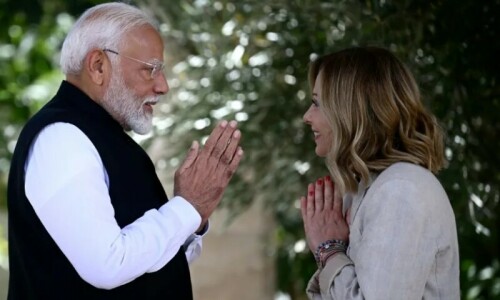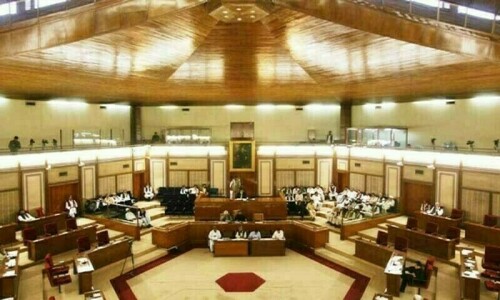GENEVA, July 26: The World Trade Organization (WTO) said on Friday that the European Union’s trade policy had largely maintained open markets with the exception of agriculture products and textiles, areas that are vital for developing countries.
In its two-year trade policy review of the EU, the WTO’s secretariat found that tariffs “well above the average” applied on textile imports into the EU, while average tariffs for farm products were four times higher than those on other goods.
The regular assessment also noted that there was evidence of pressure within the EU to increase tariffs on some processed farm products.
The WTO highlighted the vital role of the 15-nation bloc in the world trade system and said its support for the liberalized, but rules-based, trading regime was crucial.
“The EU’s position as the world’s leading exporter of goods and the second largest importer is testimony both to the importance of trade to the European consumer, and to the significance of the EU as a market for most WTO members, notably developing countries,” the WTO said in its report.
It added that policy pursued by the EU over the past two years had backed up further internal economic integration “by maintaining open markets for non-agricultural products — except for textiles and clothing — proceeding on WTO liberalization commitments and supporting further deepening of multilateral commitments”.
The WTO also noted that average EU tariffs on some chemicals, textiles, iron and steel products were “slightly lower” than in its previous report two years ago, at an average of 4.1 per cent.
But it warned that the EU’s simple average tariffs on agricultural products stood at 16.1 per cent, with even higher levels applied on imports of products that are covered by the EU’s Common Agricultural Policy (CAP).
“Evidence of tariff escalation remains, in particular on processed products,” the report added.
On textiles and clothing the WTO also found “tariffs well above average”.
“The EU has long maintained restrictions on imports of textiles and clothing products from a number of developing countries and transition economies,” it noted, adding that outstanding EU restrictions were due to be eliminated by the end of 2004.
European Commission deputy director-general for trade Roderick Abbott welcomed the report.
“Basically they say we have a largely open market and that is correct,” he told reporters.
“They have said that we have demonstrated a strong commitment to trade and development which is also something we share very strongly,” he added.
Abbott said the EU had wanted for years that the United States, Canada and some other countries match textile tariffs at levels in Europe.—AFP










































Dear visitor, the comments section is undergoing an overhaul and will return soon.